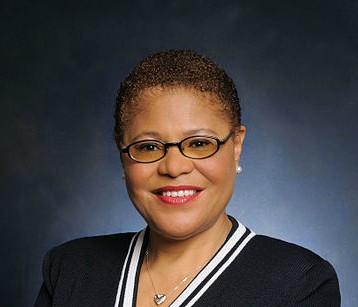[Africa News\ Internet Freedom]
Rep. Bass: “Increasingly, many African governments describe content on the internet as ‘fake news’ as the basis for blocking the information during disasters, terrorist attacks, and social unrest. African governments also harass and detain journalists, whistleblowers, bloggers, and other media workers… Oftentimes internet access is restricted during political elections, protests, and demonstrations.”
Photo: Wikimedia Commons
Today, Congressmember Karen Bass (D-Calif.), Chair of the House Foreign Affairs Subcommittee on Africa, introduced a resolution that calls on African governments to protect and promote human rights through internet freedom and digital integration for all African citizens.
“Blocking or restricting access to the internet violates freedom of speech, limits economic opportunities, and suppresses political participation,” said Rep. Bass. “Increasingly, many African governments describe content on the internet as ‘fake news’ as the basis for blocking the information during disasters, terrorist attacks, and social unrest. African governments also harass and detain journalists, whistleblowers, bloggers, and other media workers trying to do their job in disseminating information to citizens. Oftentimes internet access is restricted during political elections, protests, and demonstrations. These are the very moments when access to information, journalistic freedom, and political participation are most critical for the democratic process and rule of law. We must condemn the use of the internet as a repressive tool against any society and I urge governments to work with civil society organizations and media outlets to ensure a robust culture where all citizens can access information freely.”
This resolution (H.Res 768-116th Congress 2019-2020) condemns the restriction or disruption of the internet through any and all forms, including full internet shutdowns, “kill switches,” bandwidth throttling, high taxes, and the blocking of applications and services. It also warns against incorporating technologies from countries that use cyberattacks for surveillance and censorship, violation of privacy, and spying on competitors.
In recent years, several African countries have been accused of engaging in some form of Internet or social media restriction or censorship. Some of the countries that have been accused are: Algeria, Benin, Chad, Congo, Egypt, Ethiopia, Gabon, Equatorial Guinea, Rwanda, Sudan, and Uganda.






